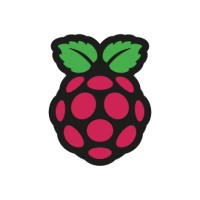About Raspberry Pi Foundation
The Raspberry Pi Foundation's journey began in 2008, born out of a concern shared by a group at the University of Cambridge Computer Laboratory. They noticed a decline in the number and skill levels of students applying for computer science courses. Their vision was to reignite the passion for computing and digital creation among young people. This led to the formal establishment of the Raspberry Pi Foundation as a UK-based educational charity in May 2009. The co-founders, including Eben Upton, Rob Mullins, Jack Lang, Alan Mycroft, David Braben, and Pete Lomas, aimed to create a low-cost, programmable computer that could make learning about technology accessible and exciting, reminiscent of the early days of personal computing with platforms like the BBC Micro. Their idea was to strip away the complexity of modern PCs and provide a hands-on experience with the inner workings of a computer system.
The first Raspberry Pi computer, the Model B, launched in February 2012, and its success was immediate and overwhelming, far exceeding the founders' initial expectations. This rapid growth necessitated a new structure. In early 2013, the organization was split into two parts: the Raspberry Pi Foundation, which continues to focus on charitable and educational activities, and Raspberry Pi (Trading) Ltd., a commercial subsidiary responsible for the engineering, manufacturing, and distribution of Raspberry Pi computers and related technologies. The profits generated by Raspberry Pi (Trading) Ltd. are funneled back to the Foundation to fund its educational mission. Over the years, the Foundation has expanded its reach and impact significantly. It has developed a wide range of free educational resources, supports a global network of coding clubs like Code Club and CoderDojo (which merged with the Foundation in 2015 and 2017, respectively), and provides training for educators. The Foundation's work now extends to numerous countries, with a commitment to reaching young people from all backgrounds, particularly those traditionally underrepresented in technology. Their core mission remains to empower young people worldwide to realize their full potential through the power of computing and digital technologies.
FAQs
- When was Raspberry Pi Foundation founded?
- Raspberry Pi Foundation was founded in 2009.
- Who is the CEO of Raspberry Pi Foundation?
- Philip Colligan is the CEO.
- What industries or markets does Raspberry Pi Foundation operate in?
- Raspberry Pi Foundation operates in the following markets: Educational Technology, Computer Hardware, STEM Education, Open Source Hardware, Youth Development, Digital Literacy, Software Development, IoT (Internet of Things), Maker Movement, and Non Profit.
- How many employees does Raspberry Pi Foundation have?
- Raspberry Pi Foundation has 51-200 employees.
- Where does Raspberry Pi Foundation have employees?
- Raspberry Pi Foundation has employees in United Kingdom.
- Is Raspberry Pi Foundation hiring?
- Yes, Raspberry Pi Foundation has 4 open remote jobs.
- Does Raspberry Pi Foundation support remote work or working from home?
- Yes, Raspberry Pi Foundation is a remote-friendly company.
- Does Raspberry Pi Foundation offer a four-day work week?
- No, Raspberry Pi Foundation does not offer a four-day work week.
- Is Raspberry Pi Foundation transparent about salaries?
- Yes, Raspberry Pi Foundation practices salary transparency, often including salary or compensation ranges in their job posts. They provide salary data for 9 roles.
- What is Raspberry Pi Foundation's tech stack?
- Raspberry Pi Foundation has 4 technologies in their tech stack.
- What is Raspberry Pi Foundation's website?
- Raspberry Pi Foundation's website is raspberrypi.org.

